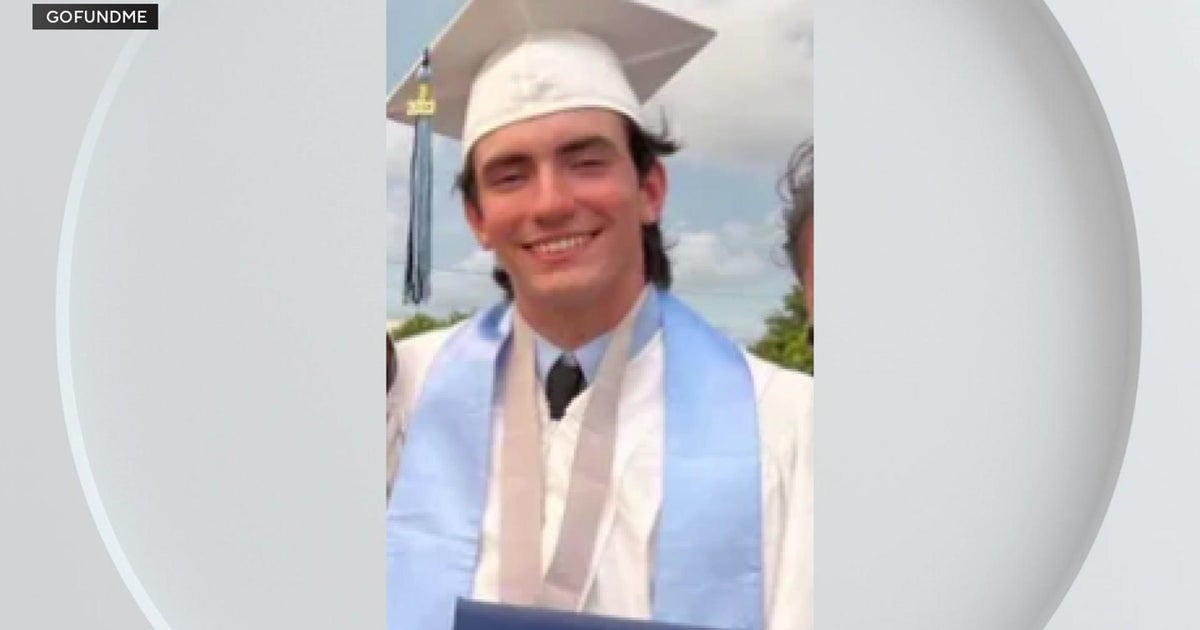US Reviews Medical Record Of Deported Haitian Who Died
MIAMI (CBS4) -- A Haitian man who suffered cholera-like symptoms and died in his Caribbean homeland after the U.S. deported him from Miami had no pre-existing health problems that might have contributed to his death, according to a review of his medical records from his time in immigration custody.
Wildrick Guerrier, 34, was sent back to Haiti on Jan. 20. He became severely ill while being held at a Port-au-Prince police station with more than a dozen other deportees and various criminal suspects, as is customary for deportees to Haiti. He died on Jan. 29 and was buried in Haiti without an autopsy. Other deportees reported that Guerrier began suffering such cholera-like symptoms as diarrhea, vomiting and weakness after he tried to help other sick detainees.
After his death, Immigration and Customs Enforcement officials ordered a review of his medical care while in U.S. immigration custody. The review concluded that Guerrier's medical care was "medically appropriate and accessed timely."
"This medical records review failed to reveal any underlying abnormalities that may have contributed to his sudden death upon deportation to Haiti," the review states.
The attorney representing Guerrier's fiancee said Tuesday that ICE's conclusion makes his death all the more shocking and bolstered the criticism against ICE by immigration advocates and human rights organizations, who contend that conditions in Haiti make it inhumane and unsafe for the deportations to continue.
"If Mr. Guerrier was healthy when he was deported, this is definitive proof of the extreme nature of the danger faced by deportees sent back to Haiti. The United States must not deport people back to Haiti when we know that they will be detained in unsanitary conditions that spread cholera and other life-threatening diseases," said Rebecca Sharpless, director of the immigration clinic at the University of Miami School of Law.
The Associated Press obtained the medical review and other records pertaining to Guerrier's 109 days in immigration custody through a Freedom of Information Act request.
Guerrier was among more than two dozen Haitians deported Jan. 20. They were the first Haitians to be deported since a catastrophic earthquake struck Haiti's capital in January 2010. All had been convicted of a crime in the U.S., except for one who was acquitted in a 2007 terror plot but deemed a national security threat. ICE has said it expects to deport this year 700 Haitians convicted of crimes such as homicide, kidnapping, sexual assault, aggravated assault, burglary, larceny, embezzlement, money laundering and extortion.
According to Homeland Security records, Guerrier entered the U.S. through Miami in 1993 as a legal permanent resident with his parents. He was taken into ICE custody Oct. 4 after serving a sentence for a 2009 conviction for a charge of possessing a firearm by a convicted felon.
ICE Health Service Corps officials reviewed of Guerrier's medical records from a Miami-area detention center, the Baker County jail and a Louisiana detention center.
Guerrier's physical and mental health remained normal throughout his detention, according to the records. A Jan. 20 medical summary showed Guerrier did not suffer from any current medical problems, nor required any special care while he was in transit.
The ICE review noted that in the week before his deportation, Guerrier had joined 22 Haitian detainees who refused to eat meals served at the Louisiana detention center for six days.
ICE officials discussed the hunger strike in multiple emails.
"They have missed 9 meals served at the facility cafeteria, however all have been noted on video surveillance to be eating commissary food and beverages in their dorms. Staff at the facility note that the detainees have purchased significant amounts of ramen soup, canned sardines, crackers, peanut butter and other snacks in an effort to stockpile food," a Jan. 15 email from an ICE Enforcement and Removal Operations official reads.
The same email states that the facility's staff began preparing to serve meals in the dorms in an effort to make the inmates eat.
The detainees discontinued their protest Jan. 17 and a physician assistant who evaluated Guerrier reported he refused to have his vital signs monitored, but showed no signs of any distress. The next day, a mental health staff member reported that Guerrier was concerned about being deported to Haiti, but he had eaten.
Immigration rights advocates, the Inter-American Commission on Human Rights and prominent Roman Catholic bishops have argued that conditions in Haiti, where a cholera outbreak has killed more than 6,200 since October, make it inhumane and unsafe to deport people there. The United Nations Independent Expert on the situation of human rights in Haiti has recommended a "flexible and generous attitude" toward Haitian nationals aboard.
(© 2011 The Associated Press. All Rights Reserved. This material may not be published, broadcast, rewritten, or redistributed.)



